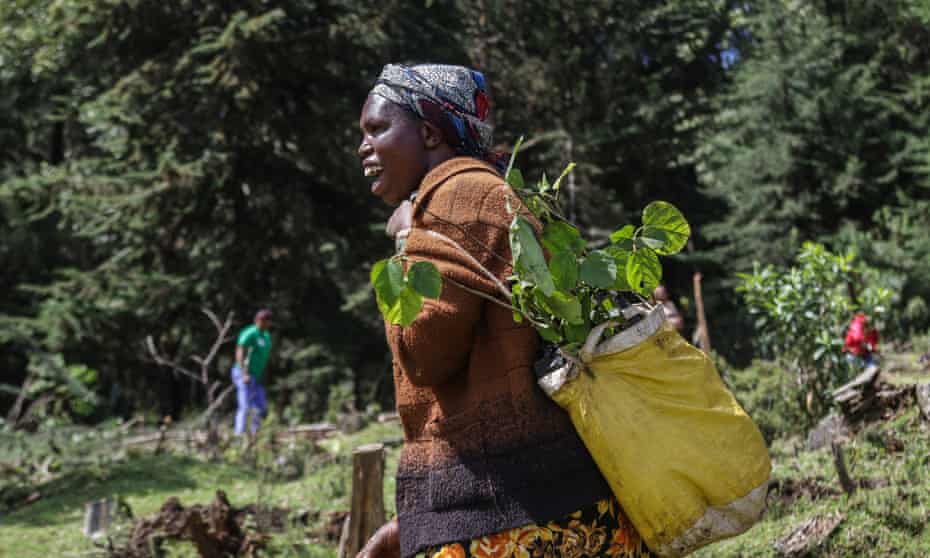How vital is adapting to a changed climate? Just ask a poor country
The world’s least-developed countries are calling on rich ones to help protect vital infrastructure, before their lands are irrevocably damaged

On Monday, the Cop26 summit will focus on the need for countries around the world to adapt to the effects of the climate crisis. Adaptation has long been an overlooked issue at the annual Cop meetings, with the focus more on reducing greenhouse gas emissions.
For many years, there were fears that talking about adaptation would distract from the urgent need to cut emissions, or even that it would be a “cop-out” – by suggesting that countries could adapt their way out of trouble as a cheaper alternative to shifting away from fossil fuels.
Those fears have fallen away as the climate emergency has become ever more apparent in the form of extreme weather events, which scientific advances have allowed us to link clearly to global heating. Last week in Glasgow, UN secretary general Antonio Guterres said that nearly 4 billion people suffered climate-related disasters in the past decade.
Adaptation can take the form of seawalls, flood barriers, storm drains in cities and shelters for displaced people, but there is also scope for “nature-based solutions” such as tree planting to help prevent landslips, restoring wetlands to act as sponges for heavy rainfall and planting crop varieties that are more resilient to higher temperatures and water shortages. All require investment, however, and most poor countries cannot raise the necessary finance by themselves. But little of the cash needed has so far been forthcoming, and donor efforts through “climate finance” have tended to focus on projects, such as renewable energy plants, that reduce greenhouse gas emissions but also turn a profit.
Sonam Wangdi, chair of the Least Developed Countries group, which represents more than a billion people, said: “Adaptation is extremely important. We need to adapt now, and for that we need money. But that money is not coming, currently. How it’s going to come, I don’t know, but we need the money.”
He pointed to increasing evidence of the effects of climate breakdown around the world: in Madagascar, where people are suffering what is being called the first climate-related famine; and in Bangladesh, where rising sea levels combined with storm surges are threatening low-lying areas, and cyclones are becoming more frequent and intense. In his own country, Bhutan, glaciers are retreating, which is causing both floods and water shortages.
Poor countries were given about $80bn (GBP60bn) in climate finance in 2019, the latest year for which full data is available, according to the Organisation for Economic Co-operation and Development. But only about a quarter of that was for projects that help countries adapt to the impact of the climate crisis; the bulk of the funding went to reducing greenhouse gas emissions.
Guterres has called for half of climate finance to be devoted to adaptation efforts. “Public and multilateral development banks [such as the World Bank] should start as soon as possible,” he added. And Wangdi warned that without swift action to protect countries’ vital infrastructure, the effects of climate breakdown will cause potentially irrevocable damage and could reverse decades of progress on lifting people out of poverty.
Poor countries emphasise that they are taking measures for themselves, even without donor assistance. “It is not that we are sitting around waiting for money,” said one negotiator. “We know we have to do this. We are putting our own budgets towards this, but we do not have enough and could do so much more if we had some help.”
Patrick Verkooijen, chief executive of the Global Centre on Adaptation, pointed to the Africa Adaptation Acceleration programme, which aims to attract $2.5bn annually from the developed world to add to $6bn a year already coming from hard-pressed African nations. The money is “a drop in the bucket” of what developed countries are capable of providing, he said, but would make a vast difference, as people in Africa were already suffering the effects of extreme weather.
He said projects that help communities adapt to the changing climate could also create new jobs and safeguard existing ones, and help fragile economies recover from the Covid-19 pandemic.
Teddy Mugabo, chief executive of the Rwanda Green Fund, pointed to Green Gicumbi, a project involving 250,000 Rwandans in a region prone to flooding and landslides. “That they face these risks is no fault of their own,” she said. “They are among the millions whose lives have already been fundamentally altered by global warming.”
The project involves forest management, watershed protection, sustainable energy and using “climate-smart” techniques to manage water and soil resources and plant the right crops in ways that make the most of the soil and climate.
Developed countries are also facing the need to adapt to the changing climate. US agriculture secretary Thomas Vilsack said the his government was working on climate-smart agriculture that would help American farmers cope with changing weather, water scarcity, higher temperatures and longer dry spells.
